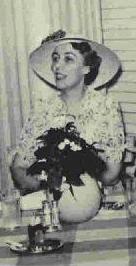A Quote by W. H. Auden
The habit-forming pain,
Mismanagement and grief:
We must suffer them all again.
Related Quotes
Grief is real because loss is real. Each grief has its own imprint, as distinctive and as unique as the person we lost. The pain of loss is so intense, so heartbreaking, because in loving we deeply connect with another human being, and grief is the reflection of the connection that has been lost. We think we want to avoid the grief, but really it is the pain of the loss we want to avoid. Grief is the healing process that ultimately brings us comfort in our pain.
We must make automatic and habitual, as early as possible, as many useful actions as we can...in the acquisition of a new habit, we must take car to launch ourselves with as strong and decided initiative as possible. Never suffer an exception to occur till the new habit is securely rooted in your life.
One of the most popular narcotics to ease the pain of economy is cherishing the belief that better days are ahead. This is both efficacious and commendable, but it sometimes turns out to be a habit-forming drug. ... Things to which you look forward too long are almost invariably disappointing when you get them, and you might die first anyway.
In general, it can be said that no contemplative life is possible without ascetic self-discipline. One must learn to survive without the habit-forming luxuries which get such a hold on men today. I do not say that to be a contemplative one absolutely has to go without smoking or without alcohol, but certainly one must be able to use these things without being dominated by an uncontrolled need for them.
With writing ... you must keep in the habit. After a lapse it will take you not an hour, but a week, a month, maybe, to find your mood again - that mood in which things drop from heaven. There's no forcing it; you can't set your notions in front of you, and stare at them till they take shape; they have to come to you whether you ask them or not. ... And you have to be in the habit of that mood! Of inspiration!
Grief is neither a disorder nor a healing process; it is a sign of health itself, a whole and natural gesture of love. Nor must we see grief as a step toward something better. No matter how much it hurts-and it may be the greatest pain in life-grief can be an end in itself, a pure expression of love.
I surrender it to God, knowing that the pain itself is a product or a reflection of how I am interpreting whatever it is that is causing me pain. Some pain is simply the normal grief of human existence. That is pain that I try to make room for. I honor my grief. I try to be kinder to myself. I give myself time to move through and to process whatever is making me sad.
I think of the chimp, the one with the talking hands. In the course of the experiment, that chimp had a baby. Imagine how her trainers must have thrilled when the mother, without prompting, began to sign her newborn. Baby, drink milk. Baby, play ball. And when the baby died, the mother stood over the body, her wrinkled hands moving with animal grace, forming again and again the words: Baby, come hug, Baby come hug, fluent now in the language of grief.




































